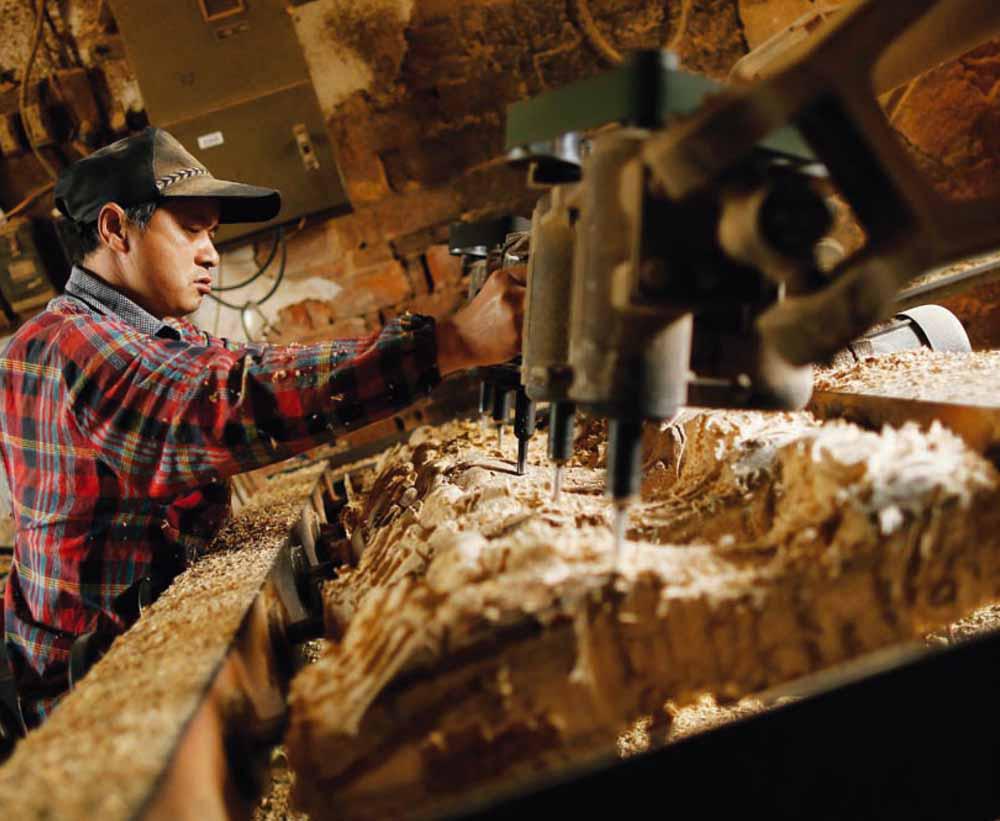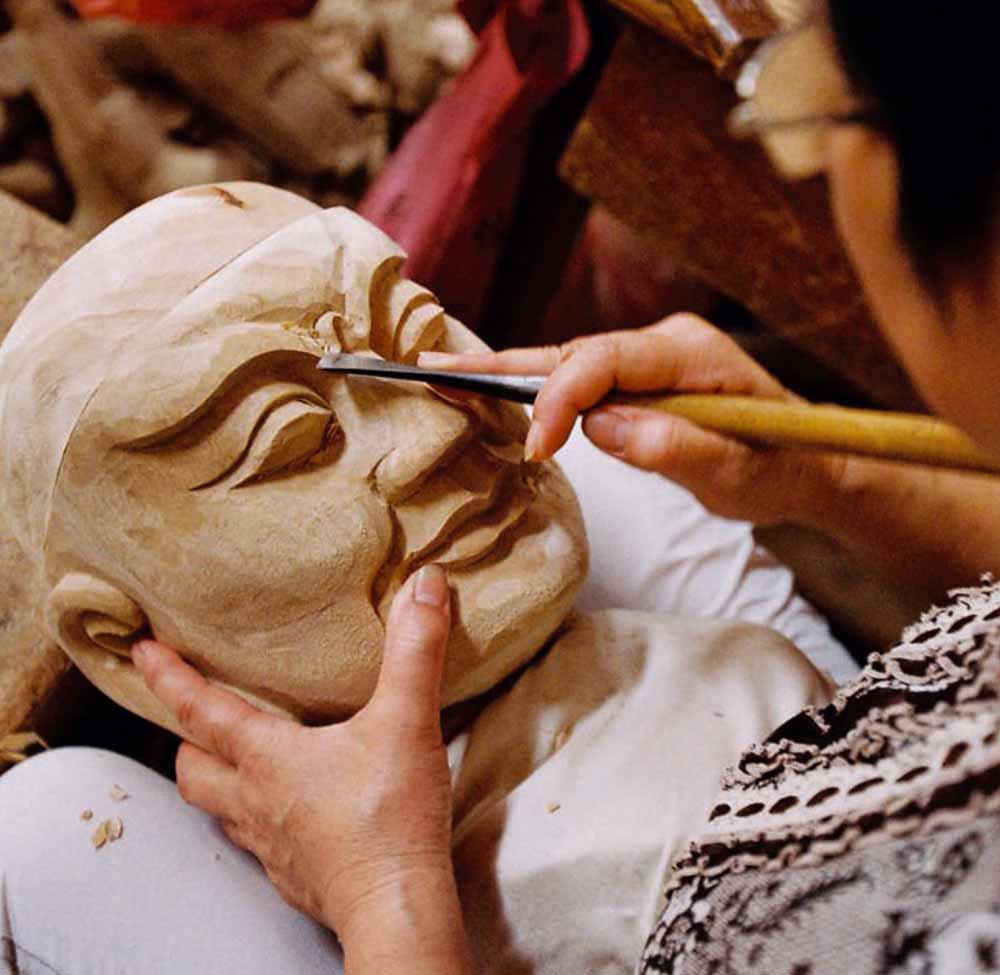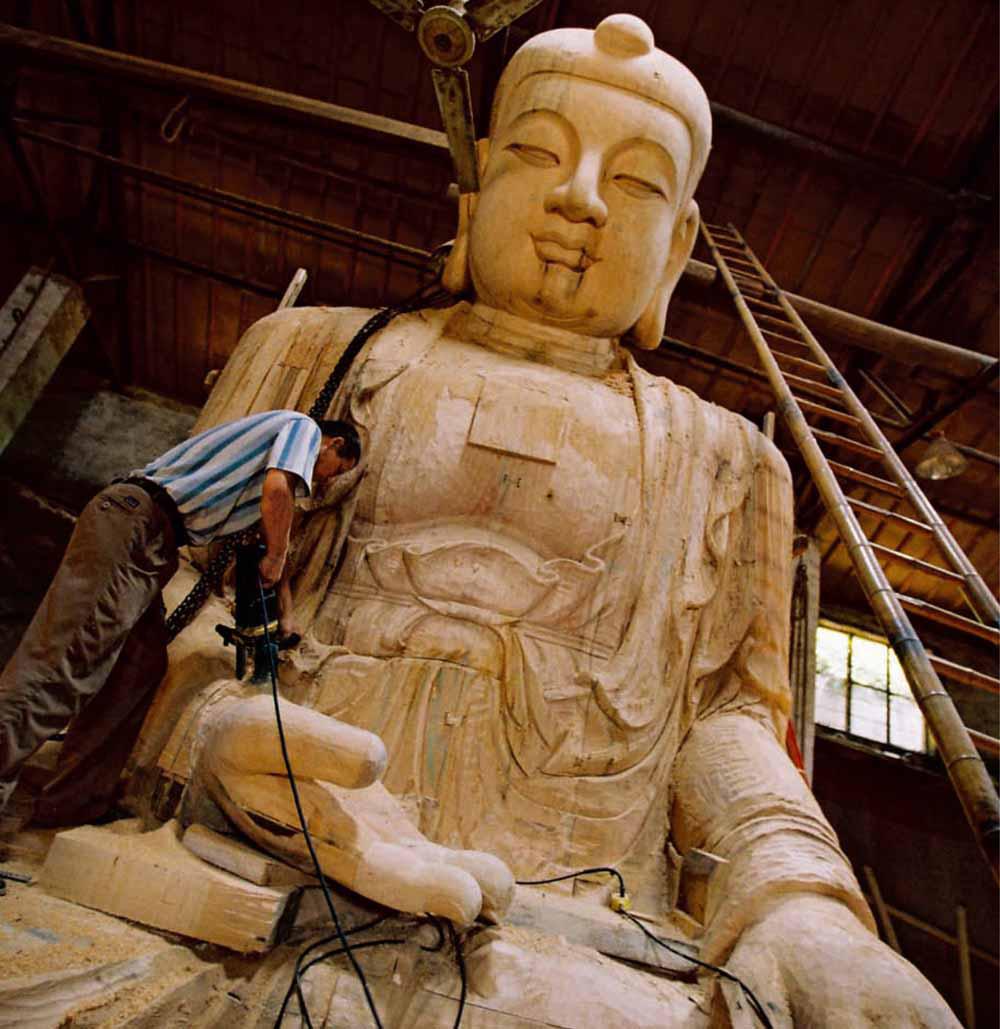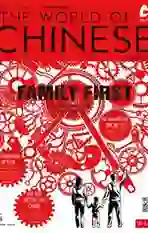THE BUDDHAS OF CHONGSHANVILLAGEhe
2016-01-10孙佳慧
孙佳慧



Photographs by Qiushan Hongye (秋山紅叶)
The wood carvers of this eastern town put art in every cut
冲山木雕佛像:技艺与信仰的结合
As the saying goes, “In heaven there is paradise, on earth there are Suzhou and Hangzhou (上有天堂,下有苏杭).” The charm of Suzhou is complicated: Natural scenery, delicate gardens, distinctive architecture, and folk songs all play their parts. Of all of its varied charms, perhaps the most astonishing is the dedicated single-mindedness of woodcarving.
Woodcarving in Suzhou can be traced back more than 2,000 years. And in the small village Chongshan (冲山) the essence of this ancient art is a passion devoted to depictions of the Buddha.
Chongshan Village woodcarving techniques have been handed down from generation to generation, often referred to as the “wonder of Chongshan (冲山一绝)”. The perfumed smell of freshly cut camphorwood wafts from the carving street of this village in a way that transports visitors back in time. Modernity has of course brought a few conveniences to what still amounts to a very difficult and demanding job.
Residents of all ages and sexes learn and practice woodcarving on this little street, often with their family. Small workshops are usually a family business, but its by no means casual. Finishing a Buddha sculpture, especially a large one, is a big job that requires many hands—some requiring a master craftsman.
Lumber is cut into sections and sent to separate workshops—some do heads, some do bodies, some do hands. The separate parts are then assembled into a sort of rough first draft. This first embodiment is then sent on to another workshop where it will be carved in detail, polished, and painted. Some of the larger sculptures involve several artisans working together at the same time on one magnificent specimen. Photographer Qiushan Hongye was shown one 5.5-meter sculpture that would take over six months to finish.
Most procedures are performed completely by hand, but the village has adapted quite well to modern technology. Some orders are filled in bulk from woodcarving machines.
Buddha sculptures made in Chongshan Village have been sold to all Four Major Buddhist Holy Land sites in China (Putuo, Wutai, Jiuhua, and Emei mountains) as well as temples all over China, Japan, the US, and throughout Southeast Asia. Among them, the thousand-hand Bodhisattva sculpture of Longhua Temple in Shanghai is perhaps the most outstanding.
As with many traditional arts, the young in the village are choosing to leave to make a living elsewhere, but the remaining residents are hoping to keep this carving culture alive. The local government offers a great deal of support, but the ancient attitude that keeps Chongshan works so delicate and charming is also what makes it exploitable. Villagers usually explore the market as individuals and professional marketing as a industry is lacking entirely. For now, that may be a good thing, as passion and mastery can still be felt in the delicate woodcarving of Chongshan.
Caption:
-An automatic woodcarving machine etches a sculpture from drafts sent in by customers, a modern update
on Chongshans ancient methods
-This artisan crafts refined detail into a roughly-carved head piece
-A craftsman sands the hands of a 5.5-meter-tall sculpture that will require several artisans and more than
six months to complete
-Delicate details are crafted by hand via methods used for thousands of years
-Woodcarving in Chongshan is a family affair in most workshops, and every member has their own specialty
-An artisan brushes gypsum from the surface of the sculpture in preparation for their next and final painting
-Rough works wait in a warehouse to be sent off for further detailing
-To protect the piece, gypsum is carefully painted over the sculpture before more changes are made
-This finished Chongshan Village Buddha statue sits in the sixth-century Hanshan Temple in Suzhou
